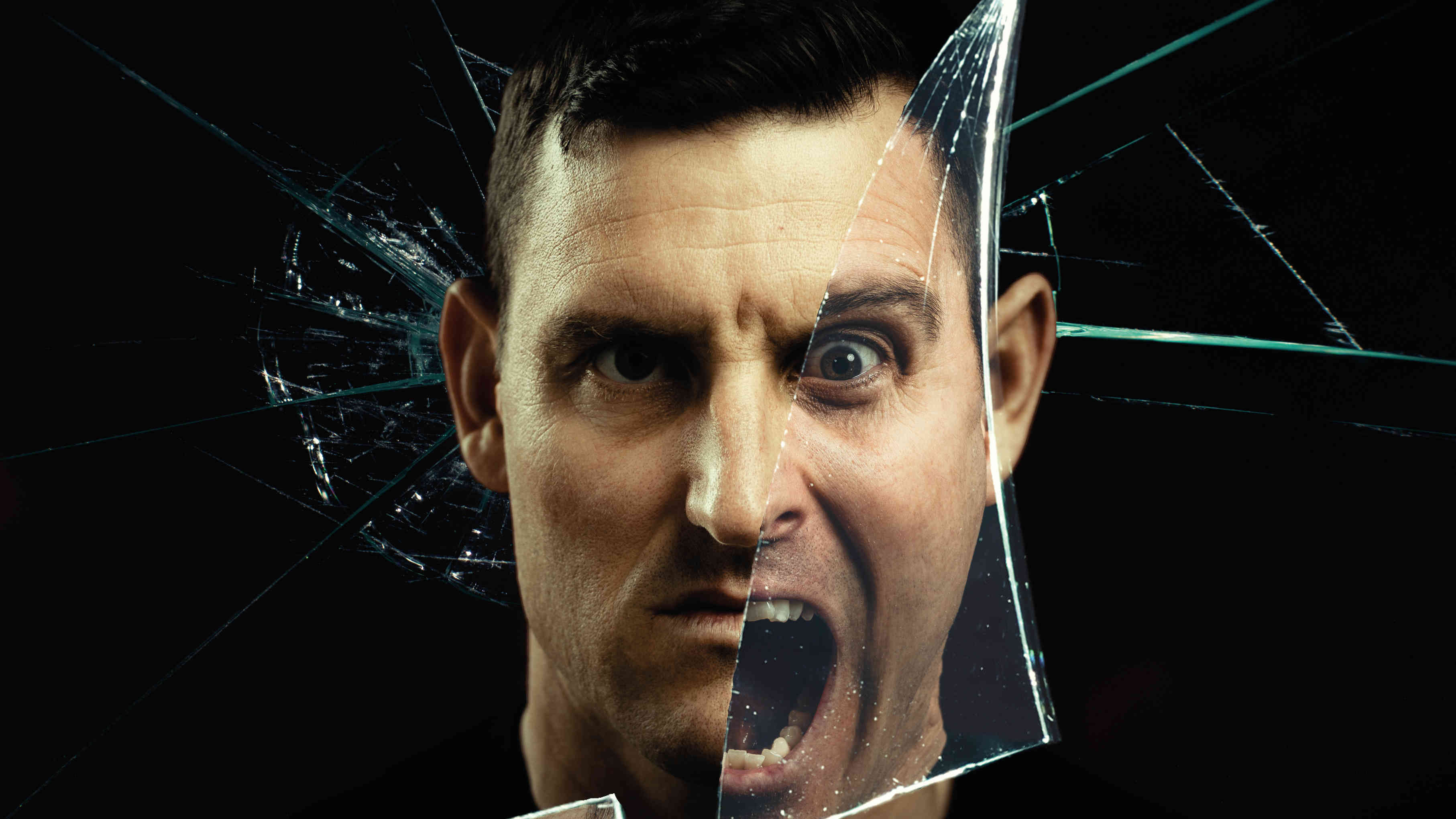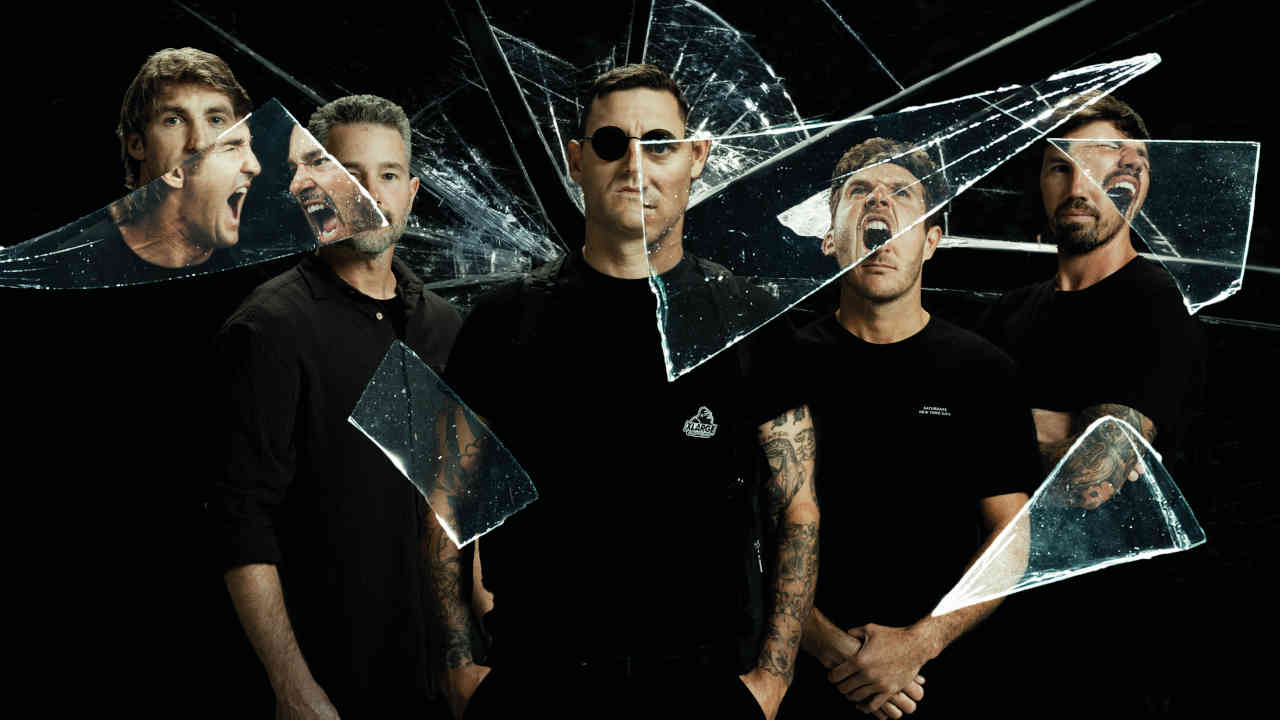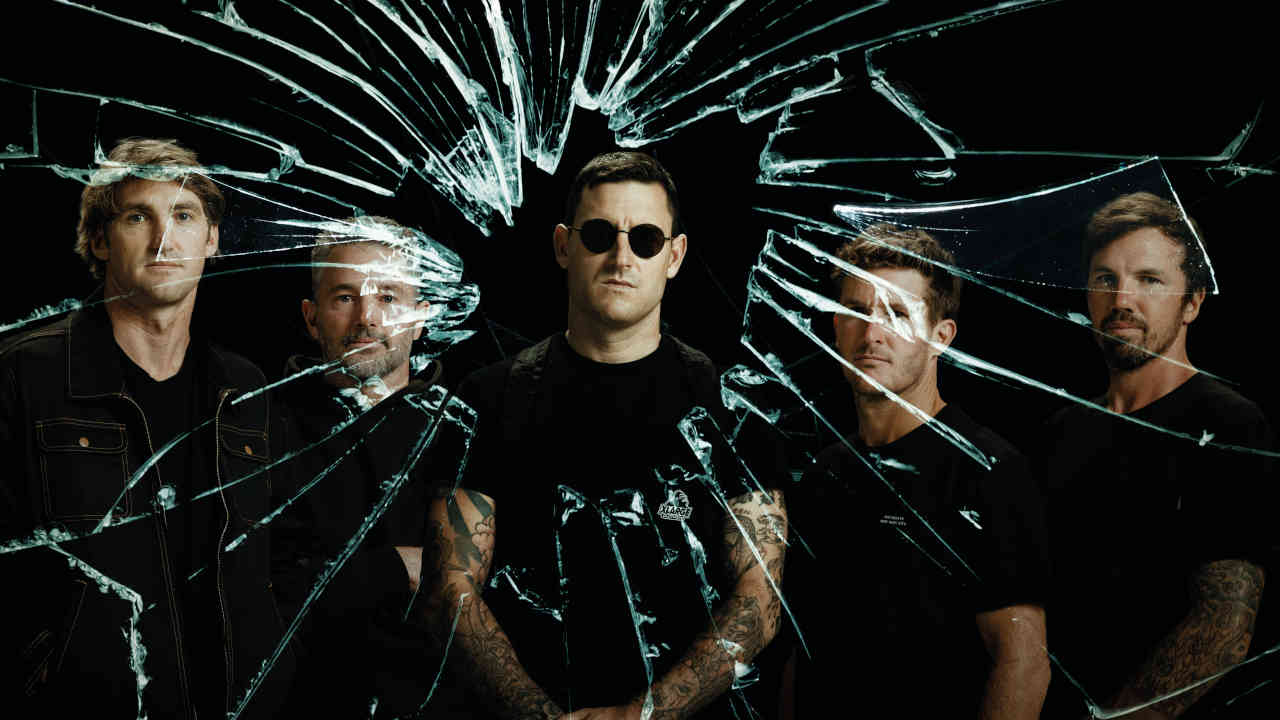“You lied to us!”
As the words boom from the silhouetted figure sitting opposite, a fist comes crashing down on the rickety old table in front of us, the sound echoing around the walls of the crypt we find ourselves shivering in.
“You lied; there’s no way to talk your way out of this. Every single thing you said wasn’t going to happen, happened.”
Winston McCall is angry. We haven’t seen the Parkway Drive vocalist for four years now, and, due to the fact that he’s decided to meet us in the dark, dank underground crypt of London’s St Pancras Church, we can’t really see him right now. Nonetheless, we know he’s seething.
“The government spent years telling us that our taxes and insurance would rise if we put plans in place to try and stop something like this,” he continues. “We were told that it would never happen. We were told it was once every 50 years, then once every 100 years, then once every 500 years – and it happened twice in a matter of weeks. Now there are people whose homes have been destroyed, and the land they own is literally underwater and worthless. Who is going to buy that land when it’s at the bottom of a river? How are these people, on low incomes, meant to recover from that? We’ve been saying for years that this was going to happen, we’ve…”
Winston puffs out his cheeks and sits back in his chair for a second, presumably in an attempt to calm himself.
Back in February, a series of floods decimated eastern Australia. Homes were destroyed, food shortages were reported, 1,000 schools were closed, evacuations took place and 22 people lost their lives. It was one of the most catastrophic events in Australia’s history, with 677mm of rainfall in Brisbane breaking the highest three-day total ever recorded. As residents of Byron Bay, the most easterly point of the mainland, the members of Parkway Drive saw it all happen. It was, in Winston’s words, “Some Old Testament shit”.
It came during one of the most fraught periods in Parkway Drive’s history. On April 6, they released a statement announcing they were cancelling their US tour. It read: “The relentless nature of being in this band has given us very little time to reflect on who we are as individuals, who we want to be and the toll it is taking on ourselves and our friendships.”
All of this has sounded pretty troubling from an outside perspective. So, what’s been going on?
In front of us in the crypt, Winston is still incensed about the impact of the flooding disaster, which he believes would have been mitigated by advance warning. “I need to tell you this, because the media are not reporting what happened,” he says. “There was a flood warning, and then, suddenly, they said it wasn’t coming. For days they said there was going to be no flood. Then, half an hour before it hit, we heard, ‘It’s coming.’ What are you meant to do then?
“They said it would be, roughly, one storey high. It was three storeys high in some cases. Those houses were destroyed, the flood went, and they used the insurance cheques to rebuild them… then a month later, the same thing happened. They might just not rebuild those towns; those communities might just be gone forever. Why would you stay when this is going to keep happening? There are people who are now having to have food airlifted to them by a helicopter because they can’t get across to land.”

A few days later, we get Parkway guitarist Jeff Ling on Zoom to ask about his version of events. “It’s sad to say, but I used to travel the world and tell people I was proud to be Australian,” he sighs. “Not anymore. Our politics is just disgusting; our government just completely turned their back on those people.”
In the aftermath of the flood, when then-Prime Minister Scott Morrison visited the city of Lismore, protesters were prevented from talking to him and separated by a line of police. The opinion that the government abandoned people is common, but in the face of such adversity, local communities stepped up to help. “I started to embrace nihilism,” says Winston. “But those people provided me with a little bit of hope.”
Jeff tell us how his partner set up a Facebook group where those in need – the elderly, people with young children or pets – could make themselves known. It led to volunteers with boats and supplies going down to find them and taking them to safety. “I’m so proud of her,” he beams.
These days, the members of Parkway are learning to see silver linings in clouds. The last few years have been “full Some Kind Of Monster” for the band, according to Winston, and “pretty touch and go for a while there” in Jeff’s words. That US tour cancellation was symptomatic of big problems in Parkway’s camp. “We had to do that,” says Winston firmly. “It was either cancel that tour, or go ahead with it and inevitably cancel everything later down the line.”
So, what has been going on, then?
“Where do I even start?” replies Winston. “We all have our roles in this band, and my role is the face and the emotional core. I had been pouring so much of myself into this band for so long, and the other guys are not lyrics guys, they’re just music guys, so I don’t think they understood just how hard it was for me to get up and connect with these songs every single night. You know, [2018 album] Reverence was dealing with all this grief and pain, and I’m the one who had to inhabit that all the time.”
Jeff concedes that Winston may have a point. “I get it,” he tells us. “I think me and all of the other guys have only just started to realise how much of a challenge that is, because none of us think like that about lyrics. We were so focused on the sound of the music that we just never considered that.”
“It got really bad,” Winston reveals. “It got to a place where we all just started really resenting each other.”

Consequently, the band, much like Metallica in the aforementioned Some Kind Of Monster documentary, decided to enter therapy together. “It’s an ongoing process,” Jeff says cautiously, when we ask how the sessions have been. “But we’ve made some really incredible strides forward. Our relationships have improved immeasurably. I actually wondered if that was possible at one point.”
“I’ve actually been surprised by how much they’ve taken to it,” Winston smiles. “I think where I was on Reverence is where some of them were when we started. I knew I was in a pretty bad place; I knew I needed to work on myself. I think the other guys hadn’t quite realised that yet. The pandemic was hard on all of us, we lost people… I lost people to suicide…” His voice trails off for a second. “It’s hard to explain if you haven’t had personal experience of dealing with that.”
We have, we tell him. It’s horrible. The unexplained, unanswerable, unresolved feelings that run through your mind, that nagging feeling you could have done something…
“You couldn’t though,” he replies. “You can’t blame yourself, but, yeah, I get that. It changes you as a person.”
It’s gone quiet in the crypt.
“If we were having this conversation in a coffee shop or a pub, I don’t think we’d be speaking like this,” says Winston softly. “That’s part of the reason I did this. I want everything, even this interview, to be part of the art of this album.”
Ah yes, and that’s why we’re here. Parkway Drive have a new album, written and recorded before they went into therapy. It’s called Darker Still, and it’s aptly named because, although you may have heard the lead single Glitch with all of its nu metal bounce and typically anthemic Parkway chorus, it is far from reflective of the full album.
“Yeah, that song is at the start and the entire album is meant to represent a crash,” Winston explains. “It’s very much carrying on from Reverence, but it’s more. It is saying, ‘Things look like they’re really bad, and, do you know what? They are. But they’re just going to get worse and worse and worse.’ We felt like it was the end of the world, and so we made an album that sounds like the world ending.”
It follows a loose concept based on The Dark Night Of The Soul (see below), and the second half spirals further into the depths. The yell-along, mosh-inducing metalcore of their early days is replaced by slow, menacing, grubby laments that have more in common with Winston’s beloved Nick Cave and Tom Waits than anything from the scene they grew up in.
“I hear all this stuff from fans like, ‘Why don’t you just make Killing With A Smile or Horizons part two?’” Jeff tells us. “That’s just really not going to happen. We never want to sit still, and if you were to go back and try and make those records again, you’d never capture the magic we had the first time around.”
It’s fair to say those fans maybe didn’t see the nu metal influence coming, though…
“Really?” scoffs Winston incredulously. “The guy sitting here in the orange tracksuit bottoms? You never saw that coming? Ha ha ha! Listen, we have to keep pushing forward. I think that those experiments we touched on with [2015’s] Ire and Reverence have now become the entire album, which is what I wanted, I’m not going to apologise for that.”
Can it get any darker? Darker than sitting in the bowels of a pitch-black church surrounded by dead bodies and talking about suicide? Winston considers the question for a while.
“I mean…” he ponders. “It can. It’s just a reflection of our lives, of the world around us. I do still have a bit of hope.”
Our time in the crypt is up, but before we go, we just have to ask: you guys are OK, aren’t you?
“We’re getting there,” comes the reply.
And with that we leave, away from the darkness and back into the light.
Darker Still is out now. Parkway Drive tour the UK from September 30

